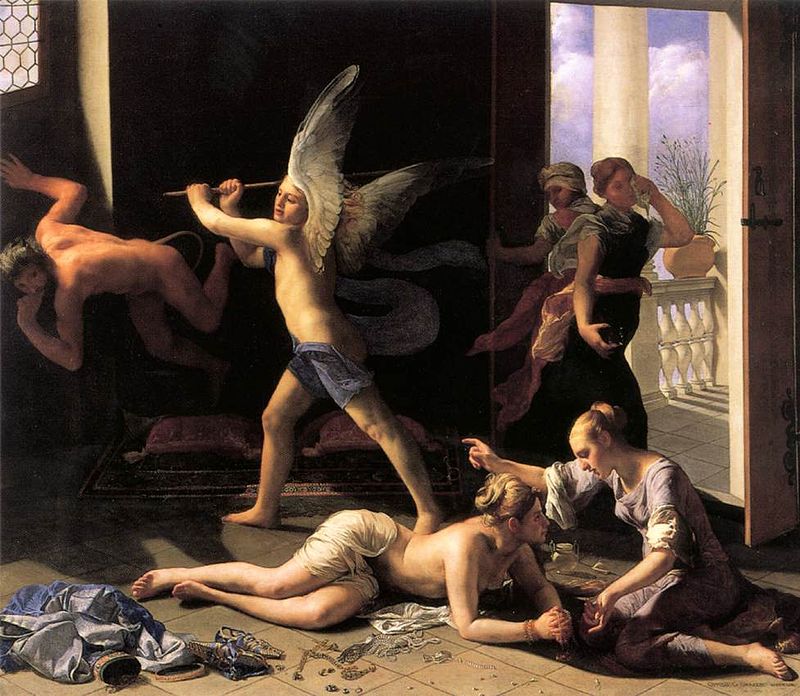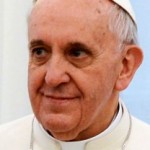
Well, the first of my 40 days of Lent didn’t start off on the right foot.
I mean, look, I didn’t even fast on Ash Wednesday (I forgot). I almost ate meat this Friday before I realized it at the last possible moment (wait, chicken is considered meat, right?). And I’ve yet to figure out how I’m going to dedicate this time to something – anything – that will help me better reflect upon what this period before Easter is supposed to be all about (but I’m thinking . . . I’m thinking).
Yes, I’m not quite there yet.
But I did run across something today that made me start to put a few things into perspective.
Things about the meaning of Lent. The meaning of Easter. The purpose of it all.
I was re-watching the first part of Father Robert Barron’s DVD series, Priest, Prophet, King.
Something that Father Barron spoke about that I must have missed the first time that I’d watched.
He talked first about worship – which is a word derived from the Old English worthship, meaning, in this context, the giving of ourselves over to the one thing that we most highly value, the one pursuit that we consider most important in or about our lives.
Father Barron then quoted famed Protestant theologian Paul Tillich:
All you really need to know about someone you can learn from asking one question: “What do you worship?”
The question really is: what are they giving themselves over to? What are they striving for? What are they spending their time praising?
I think that Tillich’s question is an important one to ask of ourselves.
For if we answer it honestly – which for some of us cannot be done without a good deal of quiet reflection – we may well discover things about ourselves that we’d prefer to leave hidden.
Someone once said that if you want to know what you most value, look at your checkbook and take note of where your money goes.
Well, that comes up just a bit short for two reasons.
First, because a lot of us no longer use checkbooks. Most, if not all, of our financial transactions are now electronic – but obviously the concept remains the same.
More to the point, however, such an examination tells us next to nothing about how we spend our time, or on what we spend our entire lives pursuing.
Obviously, except for a very small number of us, we all need to spend a great deal of time earning a living. Sleep, meals, and obligations caring for others – children, parents, even spouses – cut deeply into any remaining time we have.
But there’s an amount of time, whether it’s a couple of hours a week, or even just a handful of minutes during the day, that we have some control over. (If not, we may need to immediately re-prioritize because it probably means that we are thisclosetoburningout.)
So how do we spend our free time?
Watching mindless television? Getting lost in music? Reading, physical exercise, or some other activity that focuses our attention inward?
Now, none of these are inherently problematic in and of themselves, of course. Some even add a necessary balance that help us to both de-stress and renew.
But have we come to worship these things? Have we given ourselves fully over to them? Have they become so essential that they now compel our attention away from the things that truly matter? Have they become our false idols as Elizabeth Scalia has written about?
Pride. Massive ego. The unbridled pursuit of money. Extraordinary vanity. The casual, sometimes hateful, dismissal of the poor, the homeless, the infirm, the elderly.
Such things might well remind us of Hollywood, or Wall Street, or our throwaway culture.
But those aren’t the only places where such massively misdirected values have taken hold.
No. For these same values have now infiltrated our very hearts, our minds, our souls. And we must find them praiseworthy on some level – or else why would they flourish so?
Father Barron again:
Bad worship leads to a disintegration of the self. Right worship leads to a beautiful soul.
Everything within scripture, Father Barron teaches, is about leading us back to a world that existed prior to the fall. To a time when right praise alone dominated the landscape.
That’s what Cross is ultimately all about.
Keep this in mind though: God doesn’t need our right praise.
We do.
For, as Father Barron has observed, engaging in right praise aligns us to Him, it reconciles us to Him, and it works to restore the ideal state that existed prior to the fall (he refers to this as an “Edenizing”).
And, he suggests, it leads to a properly integrated self, a well-ordered soul, and, ultimately, a well-ordered cosmos.
Now, in the days of the temple, man’s attempt at reconciliation also required one other thing – some sort of sacrifice.
But then entered Calvary. And that upended history.
After Calvary, no sacrifice could ever be deemed more worthy. And none are ever again necessary.
So after the Cross, only one task remains. And this period of Lent is the perfect time during which to undertake it:
A setting aside of sufficient time each and every day to engage in right praise.
That is, sufficient time for prayer. For contemplation. For gratitude. For love.
In that way, we can finally begin to reorient our gaze, our thoughts, our words, our pursuits – yes, our worship – back to the Cross.
In so doing, we just may be privileged to, once again, wander back into the land of Eden.
And be met there with open arms.
Peace
Image Credit (Wikimedia Commons, Public Domain): Guido Cagnacci’s “Martha Rebuking Mary For Her Vanity“















